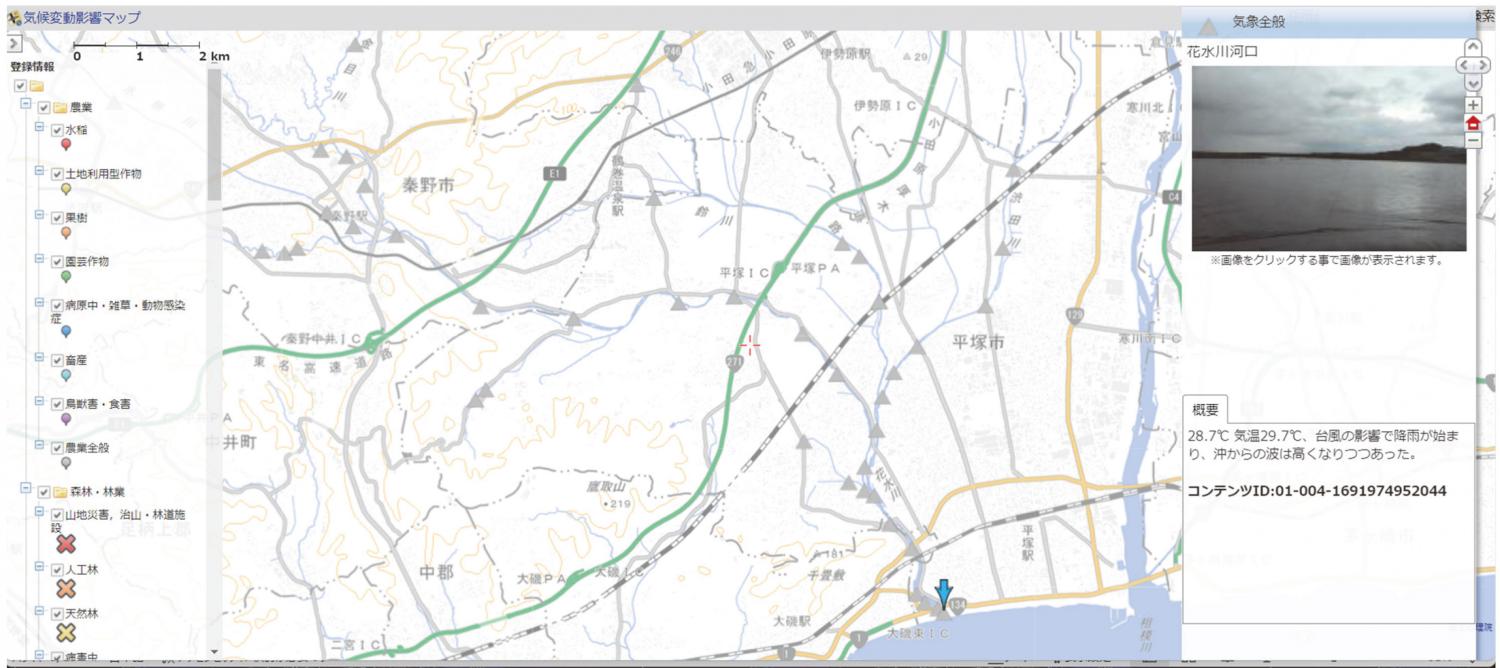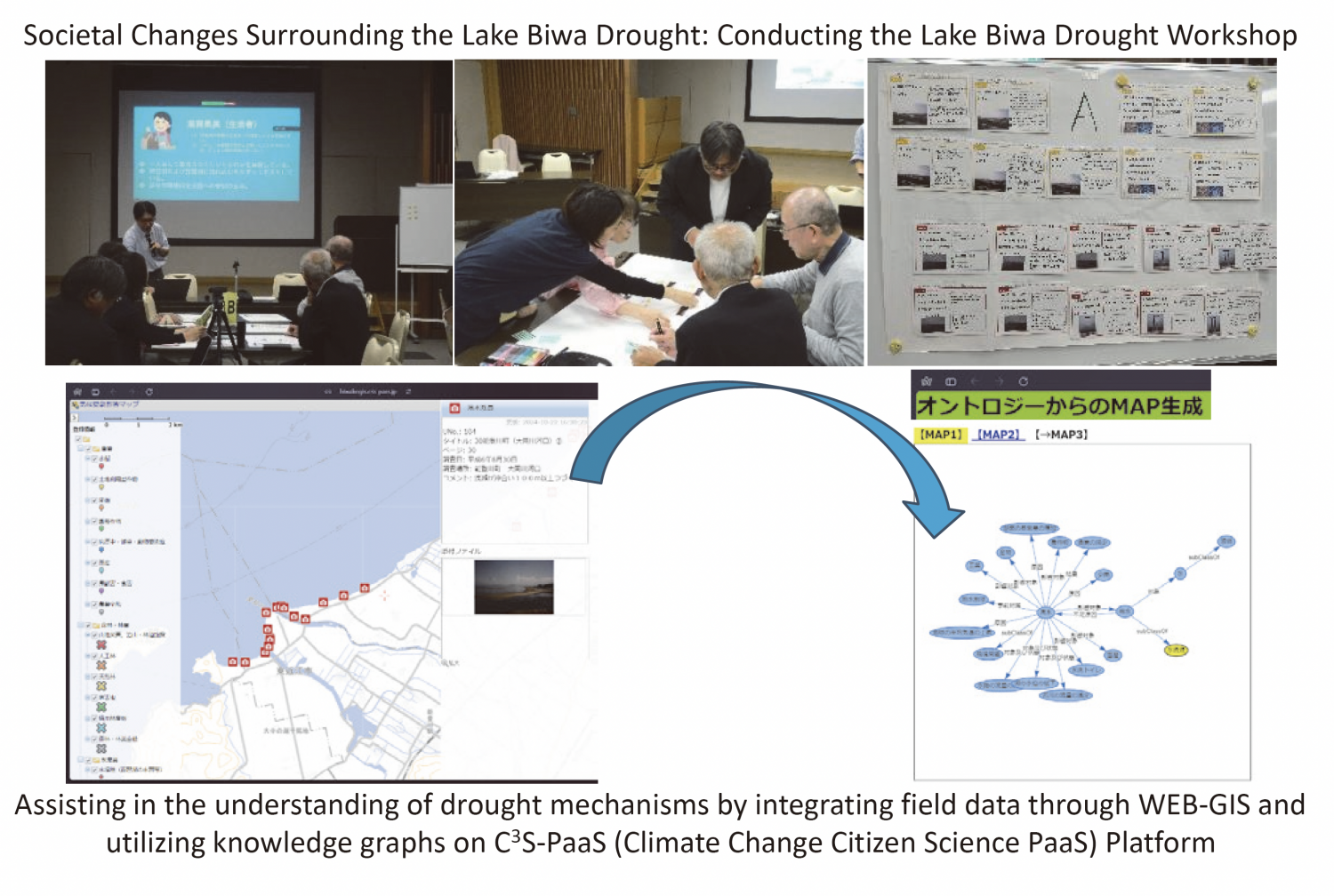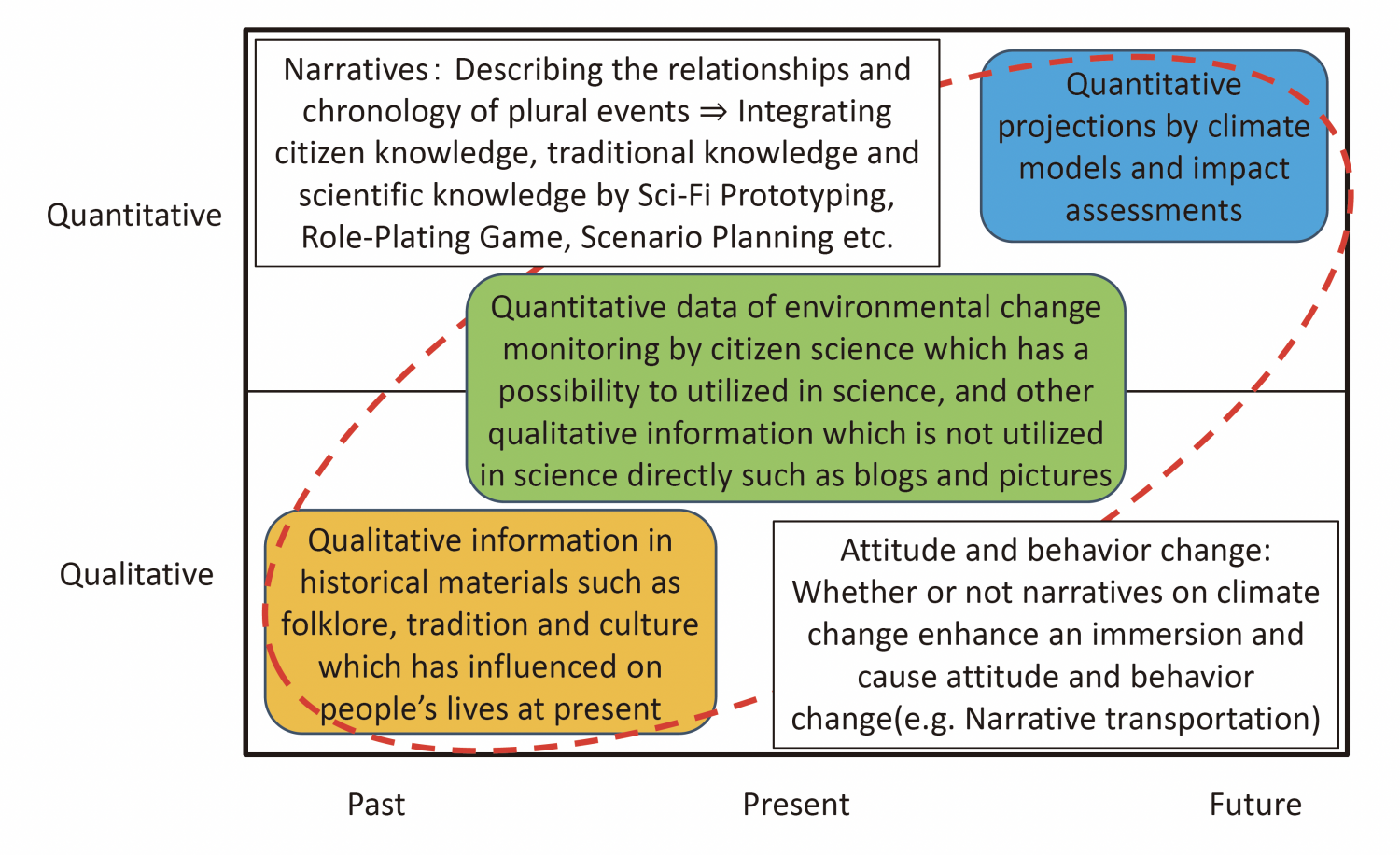
Feasibility Study
Co-creation of the Earth-human System Program
Examining Attitude and Behavior Change towards Climate Change by Utilizing Citizen Knowledge
Abstract
This project integrates citizen-collected knowledge and traditional knowledge with scientific data to foster narrative-based understanding of climate change. Through deliberation and public engagement,it promotes attitude and behavior change toward a decarbonized,climate-adaptive society and contributes to policy and
legacy development.
Why do this research?
This study promotes citizen science as a means to bridge scientific knowledge of climate change with broader public understanding and the behavioral change needed for societal transformation. By encouraging citizens to observe and document climate-related phenomena in their everyday lives— such as shifts in local weather patterns, seasonal cues, or changes in ecosystems—and by incorporating traditional knowledge that reflects long-term human–environment relationships, the project brings diverse forms of knowledge into dialogue with scientific predictions. Building on these complementary perspectives, the project enhances an existing deliberation platform that enables citizen scientists, experts, and policymakers to jointly examine the collected data, exchange interpretations, and co-create narratives that connect the past,present, and future. Through this integrated and participatory process, the study seeks to deepen societal understanding of climate change, strengthen evidence-informed decision-making,and promote actions that support the transition toward a decarbonized and climate-resilient society.
Results
What we want to do
First, we will work with experts to identify fields, indicators,and monitoring methods in which citizen scientists can effectively observe phenomena that may reflect the impacts of climate change. At the same time, we will explore the potential for collecting citizen knowledge and traditional knowledge at domestic sites and promote their sharing through the platform.We will also examine directions for expanding the platform and investigate how climate-related narratives generate immersion and encourage behavioral change. In addition, we will establish a framework for international collaborative research with partners involved in climate-focused citizen science overseas.
News
-
{{ data.disp_date }}
{{ data.content }}
Member
FS Principal Investigator
BABA Kenshi
Professor, Faculty of Environmental Studies, Tokyo City University
Main Members
AOKI Eri Yokohama City University
AOKI Kazumasu University of Toyama
ISHIKAWA Yoichi JAMSTEC
IKKATAI Yuko Kanazawa University
OSAWA Hirotaka Keio University
OZAKI Taira Kansai University
OZAWA Haruna Tokyo City University
KAMATANI Kaoru Ritsumeikan University
KIMURA Michinori Lake Biwa Environmental Research Institute
KOZAKI Koji Osaka Electro-Communication University
KOSUGI Motoko Shizuoka University
TAKEUCHI Kazuhiro Osaka Electro-Communication University
TAKEDA Hideaki National Institute of Informatics
TAMURA Makoto Ibaraki University
TOYOTA Tomoyo University of Shimane
NISHINAKA Miwa Kagawa University
NISHIMURA Shintaro National Institute of Japanese Literature
MATSUURA Masahiro Meiji University
YOSHIZAWA Takeshi The University of Tokyo
Research schedule
| 2024 | 2025 |
|---|---|
| FS | FS |

